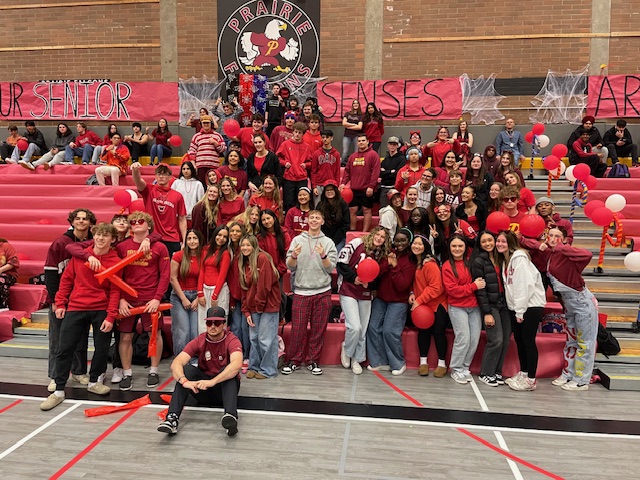In 2016, only 39.4% of the American youth eligible, registered and voted in the election. Then in 2020, that number jumped to 48%. This jump is shown by the difference in total voter turnout from 2016 to 2020, from 70.3% to 72.7%. This data is highly representative of how the younger generation is not voting nearly as much as the older generation.
This isn’t a new thing for the US, the age gap has been there for a long time. It also isn’t unique to just the US, this happens in countries all around the globe, but why? A poll on Prairie High School was taken, and out of all the staff polled, 100% confirmed they were registered and voted. Out of all 18-year-old students as of November 5th, 71.43% of the students registered and voted. If we combine all the data, we get a total voter turnout rate of 88.24%, which is still a large difference of 16.81%.
A very common answer to the question of why young citizens don’t vote is directly related to habits. Over time, older citizens develop habits of voting in elections, and they know which candidate they will vote for. Because young citizens don’t have a habit of voting and learning about the candidates and their policies, it causes many not to vote as they are unsure who to vote for.
James Stager, a voter-eligible student-athlete at Prairie High School, was asked the question of why the youth voter turnout rate is lower than the older citizen turnout rate. “They don’t really know what their beliefs are yet. They haven’t really looked into it as much as older people that have been doing this for years upon years,” Stager responded. Stager believes that young people can learn the same, if not even better, than older people can, because “Older people can have their thoughts persuaded from family over tons and tons of years,” Stager stated.
A teacher at Prairie High School, Rob Smith, was also interviewed. Mr. Smith teaches machining and welding classes, as well as engineering classes. Mr. Smith is also the football team’s defensive coordinator and the wrestling head coach. When asked the same questions as James Stager, Smith responded, “I just think the younger age groups don’t see the importance of voting. My generation and the generation before me felt that it was a right to vote and that you earned that right. ” Mr. Smith also talked about his childhood and how he felt about voting then compared to now. “When I was younger, in my 20s or early 30s, I didn’t give a rat’s behind about politics. But now that I’m in my 50s and 60s, I really care a lot about it,” Mr. Smith told us.
There isn’t one specific reason why young citizens don’t vote as much as older citizens, different studies can give us possible answers such as habits, but we can get so many more ideas from interviewing the public. Getting responses like not knowing your beliefs, and it being a right to vote, shows us how many possible answers there really are.















